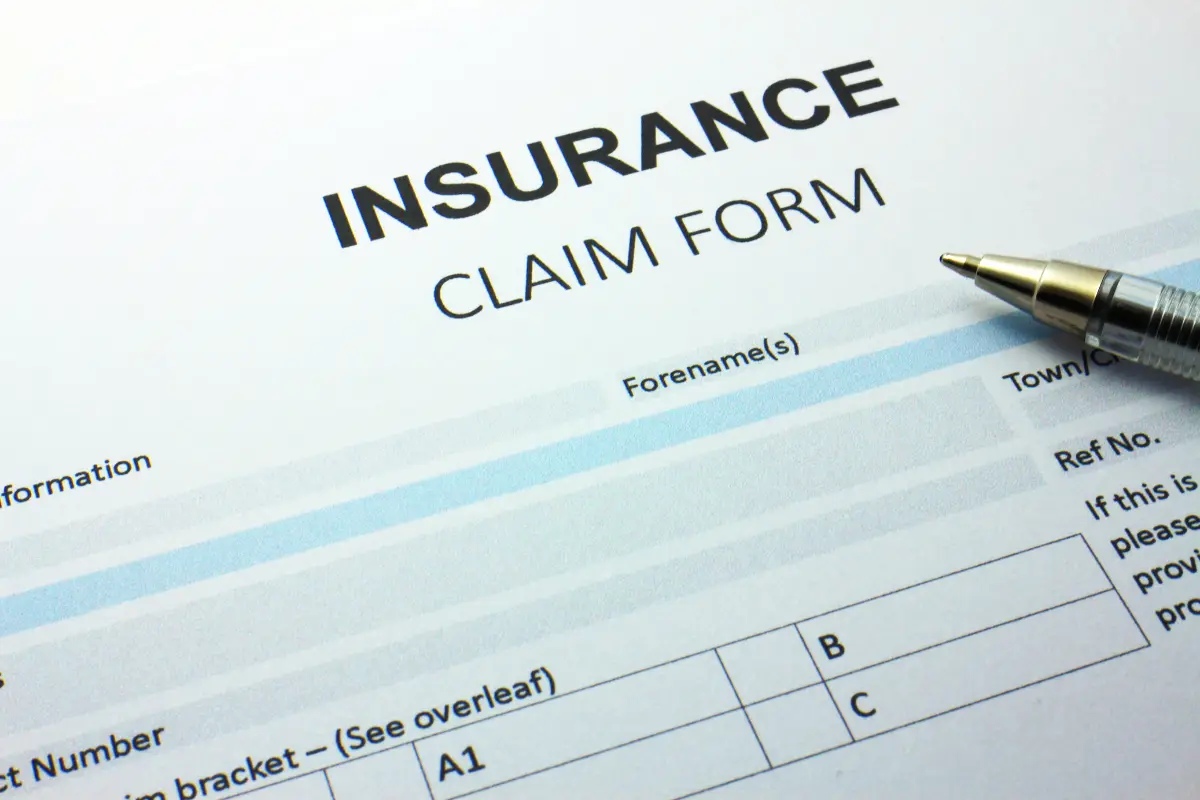Reasons insurance companies deny fire claims– a very awful decision for both the company and the client.
If you are in imminent danger or in bad times, there is no one but the insurance company is always beside you. You can call it “the middleman” between you and any kind of trouble, especially fire claims.
But!!! It’s unfortunate that, for various reasons, policyholders’ fire claims are sometimes denied by insurance companies. Although It’s a shame for clients, insurance companies have numerous valid explanations for their actions.
Today, we’re going to talk about the top 11 reasons insurance companies deny fire claims and also your concerned FAQs.
So let’s scroll!!!
Fire Insurance Claims
A fire insurance claim is the process of asking for help with the cost of fixing damage to your home after a fire.
Insurance companies are financial intermediaries that offer direct insurance or guarantee services to protect clients financially from future risks. By being loyal customers, the insurance company assists them fully financially.
If you are a legal customer of your insurance company, you can undoubtedly claim substantial financial assistance in the event of a disaster, such as a fire. Companies are also always willing to lend a hand for insurance benefits.
11 Reasons Insurance Companies Deny Fire Claims
There are immoral or incorrect assumptions everywhere. Fire claims are so mysterious without finding any valid reasons; sometimes, the insurance companies refuse to assist their clients.
So, let’s analyze the reasons:
1. Possibly Fraudulent Fire Insurance or Arson
This is one of the most common and sad reasons that insurance companies directly deny their clients any financial support. Many fraud clients do defraud activities such as intentionally occurring fires in their houses for fire claims to get their funds early.
You or a family member may be accused by the insurance company of starting the fire to get your money back. It’s aggravating when insurance companies claim the fire was caused purposely to avoid paying. A trial is frequently needed to show this. If the firm discovers previous arson or false fire damage claims, your claim will be refused.
Besides, sometimes, many unscrupulous companies may intentionally raise the fraud concern in order to stretch out the payment process by forcing them to establish that the claimant or someone operating on their behalf committed arson.
You must provide sufficient proof to refute the company’s claim that you or someone acting on your behalf set fire to the building. It is also important to determine whether or not arson contributed to the fire.
Advice:
- Seek the advice of competent counsel as quickly as possible, especially in this situation.
- Recruit a capable legal defense team to fight for your rights as well as your insurance claim if you believe someone has set your property on fire.
2. Unclear Information About the Loss
This is one of the second major reasons insurance companies deny fire claims. Unclear or non-transparent information is the main concern in this issue.
If necessary details are lacking or administrative errors are made, the insurance company may delay or even deny your compensation.
It might be challenging to assess the situation after a house fire, ensure everyone’s safety, and coordinate with the fire department. Insurance claims are frequently denied when fire and smoke damage is not properly documented. If the policyholder fails to submit the necessary paperwork to the insurance company in a timely manner, the claim for fire insurance may be rejected.
Advice:
- You should collect as much evidence as possible to support your claim. You’ll need this evidence to convince your insurance company that your claim is valid.
3. Conflicts in Valuation
Insurers also frequently use value disputes to avoid paying fire insurance claims. Valuation disputes are notoriously difficult to resolve due to a lack of supporting evidence. During the fire claim procedure, the homeowner is responsible for compiling evidence of the value of their home, its contents, and all insured objects.
The homeowner’s request for reimbursement is unlikely to be granted if they cannot show evidence and verify the expenditures.
Imagine filing a claim for the amount it would cost to rebuild your home, only to have your insurance company counter with a far lower estimate of the property’s value. A value dispute will result in the denial of your claim.
Although it may be difficult to prove the true market worth of your home, offering supporting evidence might help.
Advice:
- Having invoices for home repairs, before and after pictures, and documentation of the home’s construction date can all be helpful. Your insurance dispute lawyer will be aided by all of this proof.
- Do not accept the initial offer made by your insurance provider without first obtaining a second opinion.
4. Limited Policy Coverage
Inadequate coverage occurs when neither the incidence nor the type of damages are covered by the policy. For instance, the policy may only pay for repairs related to fire, not smoke or water from sprinklers.
Furthermore, some insurance may not include coverage for unintentional damage. If the type of fire that destroyed your building is not covered by your insurance, your claim will be rejected.
For instance, your insurance company may refuse to pay for damages from a fire if it was caused by something beyond the fire insurance policy, such as a war.
Be sure to read the policy’s tiny print and terms and conditions thoroughly. The majority of commercial and homeowner’s insurance policies have exclusions or scenarios in which claims will not be paid. For instance, the policy will only pay for fire damage if that is specifically stated as a covered occurrence.
Fire protection is typically included in most of the homeowners insurance policies. However, if you reside in a region of Arizona that is prone to wildfires, you may want to consider purchasing additional fire insurance coverage.
Advice:
- Before filing a fire claim, you should read your homeowner’s insurance agreement carefully to see what kinds of damage are covered.
5. Impoverished Workmanship/ Artwork
Defective workmanship or design, which means that some part of the house was improperly built, is another frequent reason insurance companies deny fire claims.
The building’s bad state will be considered as a contributing and precipitating element to the outbreak of a fire, which you and your contractors could have avoided if they had been alert enough.
This frequently occurs when a constructor lacks the necessary licensing and permits. If you built it using materials that the appropriate authorities or manufacturers have since recalled due to subpar performance or inadequate fire protection, the insurer might deny a claim.
This method is also employed by insurance providers to avoid paying claims. The insurer may assume that the insured won’t have enough evidence to back up their claim.
Advice:
- Get acquainted with your house insurance coverage, and when submitting a claim, request legal counsel.
6. Illegal Activities
One of the common reasons why insurance companies deny your fire claims is that there is proof of illegal activity.
An insurance company may deny your fire claim if they think you started or helped start the fire by being careless or doing something illegal.
For example, if the insurance company finds proof that you did electrical work on your own without a permit, this could mean that your home is not covered for fire damage. The same is true if there are rumors of arson, which is burning down your home or business on purpose, for example, to get money from your insurance company.
Even though there are many illegal things that could cause a claim to be rejected, making drugs or other substances, such as alcohol, is one of the most common ones.
Advice:
- Gather convincing proof to demonstrate your innocence of any criminal activity. If you are honest, that could not happen.
7. Ignorance and Insufficient Fire Prevention
If negligence on the part of the property owner caused the fire, insurance companies could reject the claim or offer a lower payout. You, as the insured, are required to take reasonable precautions and preventive measures to minimize loss and damage to your insured property.
For example, if your kitchen caught fire accidentally while you were out running errands, your insurer might reject your claim.
Since you left the house, did not attempt to put out the fire, and did not contact the emergency services, this would not be regarded seriously. You must, at the absolute least, take reasonable measures to prevent further fire damage or immediately call for help.
Imagine a fire breaking out in your house because your fire alarms weren’t functioning. A fire insurance claim might be denied as a result of the malfunctioning fire alarm.
Additionally, you won’t be compensated if the source of the fire is the failure to make good on previous losses, from normal wear and tear, or from a failure to foresee potential losses.
Advice:
- If your house insurance coverage covers fire alarms, it’s especially crucial to make sure they’re operational.
- You must make sure that all fire safety equipment, including sprinklers, fire extinguishers, and shut guns, is maintained in excellent working order.
8. Failure to Pay Your Premium Insurance
Your insurance company will deny your fire claim if you haven’t kept up with your premium payments.
If you haven’t been paying your insurance premiums on time, you might not be covered if a fire destroys your home. An insurance company has every right to reject your claim for this same reason.
However, there are specific procedures that must be followed before an insurance policy can be terminated for non-payment. For instance, if they intend to cancel the policy, they must give the policyholder advance written notice and a grace period.
Your insurer’s decision to cancel your coverage may be invalidated if they did not follow these procedures.
Advice:
- Make sure to pay your insurance premiums on time.
9. Unapproved Construction Projects
Inappropriate construction projects are one of the highlighting reasons for denial of your fire claim. Since licensed, bonded, and insured electricians are trained to do quality work, use them.
If you or an unlicensed electrician does poor work in your home, your fire damage insurance claim get denied. While homeowners are responsible for property repairs, poor home care can affect your fire claim.
Fixing any problem without permits or inspections can influence future claims. This is especially true if electrical work starts the fire.
Say a bad installation created a fire. Your insurer may decline your claim. As the insured, you must remedy permit and inspection concerns.
Advice:
- Use licensed professionals for all maintenance and repairs.
10. Secrets or False Statements of Vital Information
Misrepresentation occurs when an insured omits or lies to their insurance provider. Sometimes, an insurance company denies a fire claim because the claimant lacked paperwork.
If the insurance provider cannot process your claim, missing information or administrative errors might delay your reimbursement or deny it. Withholding home policy and fire claim information might also result in a rejected claim.
For example, if your pet knocked over a candle, it may ignite a home fire. Saying the candle tipped over on its own could hurt your claim. Misrepresentation occurs when you lie that your pet knocked the candle over.
Telling the truth won’t get your fire claim denied by your insurer. Insurers will scrutinize fire details, so be accurate.
Advice:
- Truthfully disclose previous claims when buying home insurance.
- Filling out the right documents and proving your losses may help you have your refusal restored.
11. Clauses of Exclusion
Some provisions of every homeowner’s insurance policy are not covered by the contract. You should be prepared for your insurance claim to be denied if the cause of the damage to your property falls under one of the categories that are expressly excluded from coverage in your insurance policy.
Advice:
- Be aware of what coverages your insurance does and does not cover at all times.
Other Reasons- Insurers Refuse Fire Claims
- Your building was damaged by the fire that spread to it from neighboring buildings; nevertheless, the insurance policy may not cover this type of loss.
- Failure to file claims promptly or within the appropriate time frame.
- Purchasing insufficient coverage for your private belongings.
- The amount of money needed to repair the damage caused by fire and smoke is less than the amount of your deductible.
What if your fire claim is denied?
- Challenge your insurance company’s fire claim denial. Ask them to reevaluate your claim simply.
- If your request is approved, the insurance company will reconsider its decision.
- Your insurer should examine the situation swiftly, especially in urgent cases.
- If your insurance company finds a mistaken oversight caused the improper choice, you may be eligible for compensation. If the insurance company agrees, the fire claim will be refused.
- Legal representation is available if you’re unhappy with the outcome.
Strategies to Avoid Denial of Fire Insurance Claims
- Be sure to notify your insurance as soon as possible of any losses, and be aware of the deadlines for submitting claims.
- Make timely premium payments.
- Find enough coverage if it’s available, and be careful about what your insurance policies cover and exclude.
- Take all necessary precautions to safeguard the property and lessen damage after a loss.
- Record all damage and submit a thorough, itemized claim to your insurance company.
- Always keep updated records about your house construction details, especially electronic settings.
- To complete any construction project, especially one involving electronics, always try to hire licensed workers or professionals.
- Always retain and display the legal records pertaining to your property. Your ability to prove yourself will be aided if your insurance agent gets denied your claim.
- Always be proactive in taking precautions against any hazards, such as fire.
Putting out Fire Before It Starts
Although fire is occasionally unavoidable, taking the right precautions to prevent it can help you avoid the wrangling that occurs when your insurance company disputes a fire claim.
You can prevent fire and water damage by installing fire prevention tools like extinguishers, water for fire sprinklers, and the quick-stop fire sprinkler gadget.
Additionally, Shutgun can assist you with losses due to denied fire damage claims, water damage, and fire damage itself.
The Role of an Experienced Lawyer in Restoring Denied Fire Claims
A skilled insurance attorney can act as your representative in dealing with your insurance provider and can help you fight any fraudulent claims by giving the value of your claim.
If your insurance company is trying to avoid paying out on a valid claim, having an insurance adjuster from a reputable legal firm on your side can be a huge help. Professional lawyers are familiar with the strategies and terminology employed by a team of insurance companies to deny fire loss claims and to avoid paying the full amount of compensation they are legally entitled to.
The lawyers can hire third-party claim adjuster to help and determine the true amount of your claim and then file a lawsuit against the insurance company for bad faith if necessary.
FAQs (Frequently Asked Questions)
Will my insurer help me with my fire claims?
Unfortunately, most insurance companies decline claims. In order to “save” their firm, insurers will deny, postpone, or underpay homeowner claims. They will try to utilize any defense and justifications of their company for rejecting fire claims.
What Are the Justified vs. unjustified Denial of a Fire Insurance Claim?
Justified- Insurance companies often improperly refuse fire claims, even though they may have genuine grounds like non-payment of premiums, arson, or coverage restrictions.
Unjustified- They are incentivized to avoid paying claims; therefore, they will keep looking for reasons to deny your claim until they have to pay.
Conclusion
Fire claims denials are awful, right? The reasons insurance companies deny fire claims are too many to describe. Insurance firms strive to prolong your money and prove you wrong to refuse fire claims for commercial gain. Do not worry!
Property damage claims can be complicated and time-consuming for non-specialists. A public adjuster can help you submit your claim, document losses, and negotiate with your insurance carrier, improving your payment.
A lawyer can help you gather proof and sue the insurance company for the hassle of denying your claim. Fire claim denials should be fought. Consult an attorney for advice.
In our post, we attempted to highlight all of the possible reasons why your insurer can refuse your fire claim. We’ve also compiled a list of helpful hints and recommendations, as well as a solution to this problem.
Hope it ends up being of use to you!





![Self Insured Retention [ All You Need To Know] 6 Self Insured Retention](https://knowworldnow.com/wp-content/uploads/2023/09/Self-Insured-Retention.webp)
